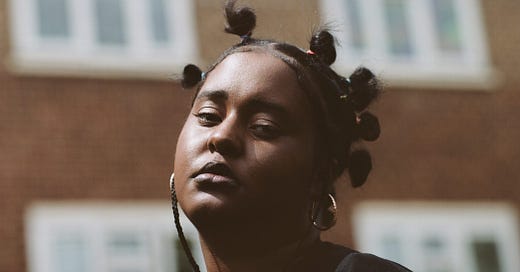Aux: “If I’m not mixed but not Black, what am I? A flannel?”
The singer on why nobody can box her in
Hi, welcome back to Mixed Messages! This week I’m speaking to Aux, who is of mixed heritage. Another participant in the inaugural year of the PRS Foundation’s POWER UP network, Aux is the lead singer of rising Hackney collective GRAMN. Read on for Aux’s inimitable take on identity.




